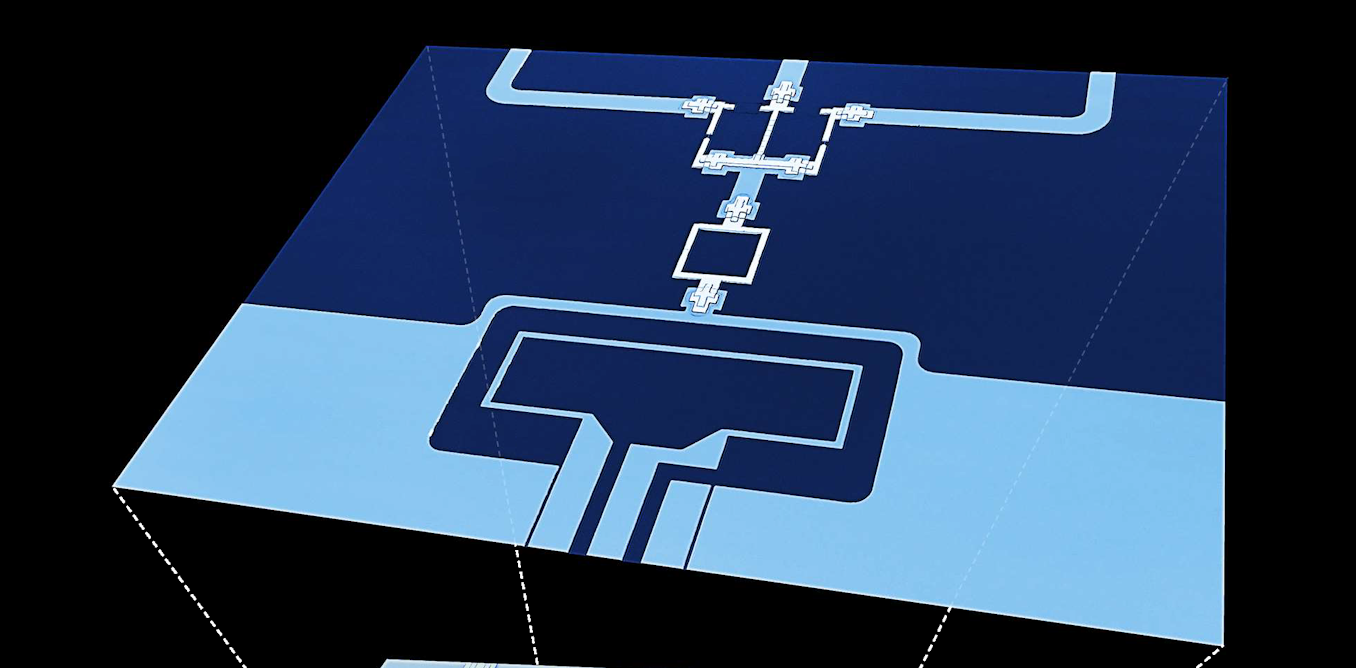Science
Nobel Prize in Physics Recognizes Groundbreaking Quantum Research

The 2025 Nobel Prize in Physics has been awarded to three scientists for their pioneering work in demonstrating that quantum effects can persist in large electrical circuits. This groundbreaking research significantly contributes to the development of practical quantum technologies, particularly in the realm of quantum computing.
The laureates—John Martinis, Michel Devoret, and John Clarke—made their major discovery in the mid-1980s while investigating superconducting circuits. Their findings revealed that these circuits, made from materials such as niobium and lead, can exhibit quantum behavior when cooled to nearly absolute zero. This behavior includes the ability to be in multiple states simultaneously, a fundamental characteristic of quantum mechanics.
Understanding Quantum Behavior in Superconductors
The research conducted by Martinis, Devoret, and Clarke has profound implications. They demonstrated that even large-scale electrical circuits could be described as single quantum particles. This simplification is crucial for the advancement of superconducting circuits as a viable technology for quantum computing. A superconductor can carry current without generating heat, which enables the manipulation of voltages and currents governed by quantum mechanics.
Today, superconducting circuits are utilized in various applications, from fundamental studies in quantum physics to simulating other physical systems. For example, the Devoret group has developed an advanced microwave amplifier based on these circuits. Such amplifiers are essential in communications, radar, and scientific instrumentation.
The Martinis group has also used superconducting circuits to emulate electron-like particles, a technique that is vital for understanding fundamental physical principles. Furthermore, researchers have employed these circuits to create sensitive quantum sensors, capable of measuring phenomena with remarkable precision, including biological activities and gravitational anomalies.
The Future of Quantum Computing
Superconducting circuits are positioned as a leading platform for quantum computing. They allow multiple quantum systems to interact and become entangled, enabling the combination of quantization, superposition, and entanglement—the key elements that give quantum computers their unique power. In quantum computing, researchers utilize quantum bits, or qubits, which can exist in two states and require coherence, controllability, and scalability.
While various technologies exist for quantum computing, superconducting circuits strike an optimal balance. Their size allows for easier manipulation and control compared to smaller quantum systems, which may lack reliability. This flexibility means researchers can adjust circuit designs to achieve specific qubit behaviors, making superconducting qubits an attractive option for future developments.
Research groups worldwide are actively exploring new superconducting qubit types, enhancing coherence, and improving control methods. Collaborations between academic institutions and industry are crucial for translating these academic advancements into practical applications. Companies and government labs are tasked with the engineering challenges of building large-scale quantum processors.
The contributions of Martinis, Devoret, and Clarke extend beyond their initial discoveries. Martinis previously led Google’s quantum processor initiative and currently operates his own company. Devoret continues to support Google’s efforts in quantum computing, while Clarke has focused on quantum circuits throughout his career. Their influence is felt across the field, as many researchers, including those in my own group, trace their academic lineage back to these pioneers.
As the scientific community celebrates their achievements, the next generation of researchers is inspired to continue advancing the field of quantum technology. The work initiated by these Nobel laureates has laid the foundation for innovations that promise to revolutionize fields ranging from chemistry to cryptography, marking a significant step forward in our understanding and application of quantum mechanics.
-

 World4 months ago
World4 months agoTest Your Knowledge: Take the Herald’s Afternoon Quiz Today
-

 Sports4 months ago
Sports4 months agoPM Faces Backlash from Fans During Netball Trophy Ceremony
-

 Lifestyle4 months ago
Lifestyle4 months agoDunedin Designers Win Top Award at Hokonui Fashion Event
-

 Entertainment4 months ago
Entertainment4 months agoExperience the Excitement of ‘Chief of War’ in Oʻahu
-

 Sports4 months ago
Sports4 months agoLiam Lawson Launches New Era for Racing Bulls with Strong Start
-

 World5 months ago
World5 months agoCoalition Forms to Preserve Māori Wards in Hawke’s Bay
-

 Health4 months ago
Health4 months agoWalking Faster Offers Major Health Benefits for Older Adults
-

 Lifestyle4 months ago
Lifestyle4 months agoDisney Fan Reveals Dress Code Tips for Park Visitors
-

 Politics4 months ago
Politics4 months agoScots Rally with Humor and Music to Protest Trump’s Visit
-

 Top Stories5 months ago
Top Stories5 months agoUK and India Finalize Trade Deal to Boost Economic Ties
-

 Health2 months ago
Health2 months agoRadio Host Jay-Jay Feeney’s Partner Secures Visa to Stay in NZ
-

 World5 months ago
World5 months agoHuntly Begins Water Pipe Flushing to Resolve Brown Water Issue









